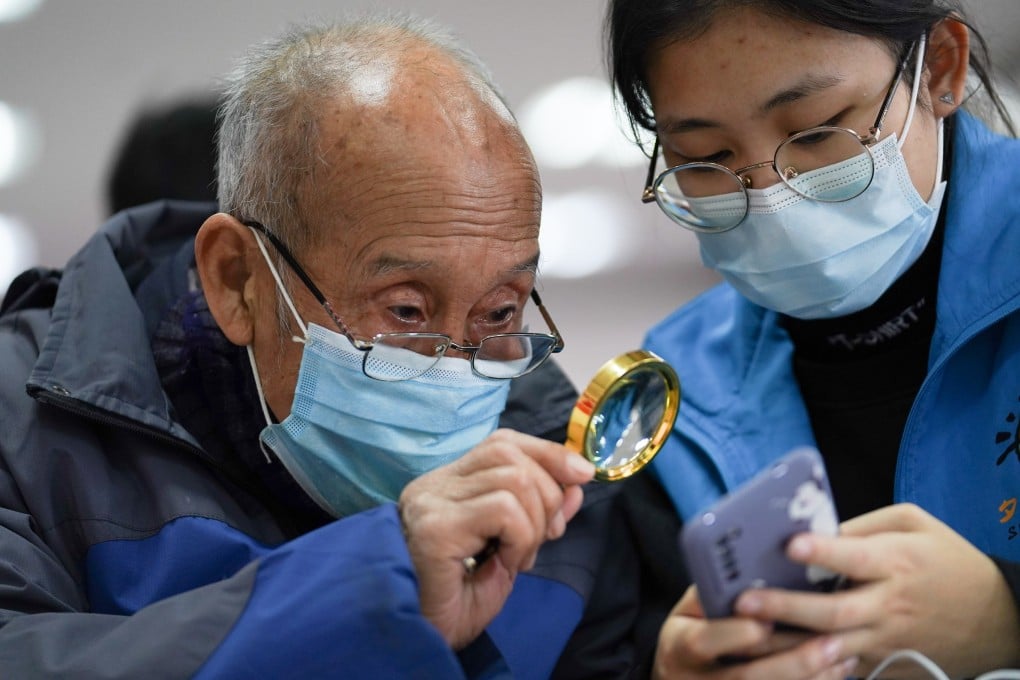Digital generation gap: China tells companies to make their sites and apps more ‘elderly friendly’ as online population balloons
- New guidelines for elderly users are part of an initial campaign targeting 43 apps and 115 websites, including WeChat and e-commerce sites Taobao and JD.com
- The moves are also seen as helping party-building, as people aged 61 or older account for about one-third of Communist Party membership

The Chinese government has asked the country’s websites and mobile apps to redesign their pages and interfaces so they are easier for the elderly to navigate in Beijing’s latest push to narrow the digital gap among a rapidly ageing population.
China’s Ministry of Industry and Information Technology (MIIT) published guidelines on Monday asking web pages and mobile apps to carry out “elderly friendliness modifications” before the end of September – including the use of bigger fonts and a ban on pop-up ads – after which compliant sites will receive an official “web accessibility” label valid for two years.
Satisfactory modifications can even earn points in China’s state-run business credit system that could open the way to bonuses ranging from government subsidies to lower bank loan rates, the ministry said.
The recommended improvements in elderly-friendly designs include bigger and adjustable text sizes, text-to-speech, verifications in audio form, as well as a ban on plug-in ad links or floating ads, according to the ministry. Websites and apps are also told to omit buttons that entice elderly users to make downloads or payments and to prominently display on homepages a button to activate “elderly mode”.
The latest guidelines are part of a campaign launched by MIIT in January to improve internet accessibility for the elderly and disadvantaged, which targeted a first batch of 43 apps and 115 websites, including the all-purpose social media app WeChat, e-commerce platforms Taobao and JD.com, as well as online services by government departments and news organisations.
More than 100 million Chinese consumers aged above 50 use the mobile internet, spending an average of 136 hours a month on their smart devices, QuestMobile said in a July survey. By 2030, about a quarter of China’s total population will be older than 60, according to government estimates.